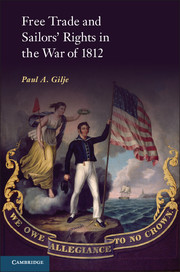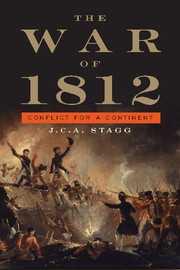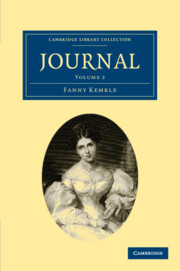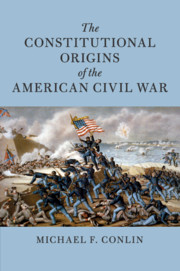Free Trade and Sailors' Rights in the War of 1812
On July 2, 1812, Captain David Porter raised a banner on the USS Essex proclaiming “A free trade and sailors rights,” thus creating a political slogan that explained the War of 1812. Free trade demanded the protection of American commerce, while sailors' rights insisted that the British end the impressment of seamen from American ships. Repeated for decades in Congress and in taverns, the slogan reminds us today that our second war with Great Britain was not a mistake. It was a contest for the ideals of the American Revolution bringing together both the high culture of the Enlightenment to establish a new political economy and the low culture of the common folk to assert the equality of humankind. Understanding the War of 1812 and the motto that came to explain it – free trade and sailors' rights – allows us to better comprehend the origins of the American nation.
- Examines the origins and meaning of the War of 1812 and explores early American diplomacy
- Discusses the special role of sailors and the navy in early American history
- Considers the special role of the concept of free trade in early American history
Reviews & endorsements
"Paul A. Gilje, one of the most prominent historians of the Early American Republic, energetically argues that the War of 1812 was the moment in which the legacy of the American Revolution became tangible to multitudes of working-class Americans. The slogan ‘Free Trade and Sailors’ Rights’ was a fusion of enlightened ideals and personal aspirations that endured in the popular imagination well into the nineteenth century. I know of no more forceful account of why many Americans thought the War of 1812 worth fighting."
Andrew Cayton, Miami University
"The War of 1812 remains misunderstood. Paul Gilje’s wonderful book helps us to understand the origins and consequences of the war. It is a finely wrought intellectual and cultural history that explains what the war meant to those who fought, as well how their descendants remembered the conflict. Free Trade and Sailors’ Rights in the War of 1812 belongs on the short list of essential books on the 'Second War of Independence'."
Frank Cogliano, University of Edinburgh
"This is a fascinating work; an extremely valuable contribution to the literature on the Early American Republic. With rich detail, Gilje shows how a simple, but powerful, slogan kept the promise of the American Revolution alive in the hearts and minds of those outside the corridors of power."
Annette Gordon-Reed, Harvard Law School
"If there is one must-read book on the War of 1812, this is it. With clear prose, up-to-date scholarship, and stimulating interpretation, Paul Gilje recovers a lost world of how Americans explained a strange and seemingly inconclusive conflict to themselves. The wartime slogan, 'Free Trade and Sailors' Rights', melded high economic theory, low political obfuscation, and genuine democratic impulses to ennoble an often ignoble cause and create a vision for the nation’s future."
Daniel K. Richter, University of Pennsylvania
"Paul A. Gilje has a well-deserved reputation as the preeminent historian of the American waterfront. In his new book, he examines the high and low cultures of maritime life to explain how the concepts of ‘free trade’ and ‘sailors’ rights’ could carry the early republic through the ordeal of its second war with Great Britain. Drawing on his extensive familiarity with primary sources and material artifacts, Gilje gives us a deeply insightful reinterpretation of the meaning of the War of 1812 on the occasion of its bicentennial."
J. C. A. Stagg, University of Virginia
"… this work makes an excellent contribution by studying the war from the perspective of both high and low culture."
Thomas Sheppard, H-War
"Recommended."
Choice
"Gilje’s book is a valuable contribution and a substantial achievement."
Matthew Taylor Raffety, William and Mary Quarterly
"… one of the best of many books recently published to mark the bicentennial of the War of 1812."
Brian Rouleau, Register of the Kentucky Historical Society
"… I would recommend the book to anyone interested in the maritime and ideological dimensions of the war as well as anyone interested in connections between the colonial and early national periods in US history."
Christopher P. Magra, The New England Quarterly
"… Gilje’s ambition is admirable. He has rescued the forgotten phrase that gave meaning to America’s original forgotten war."
Denver Brunsman, Journal of Interdisciplinary History
"This work deserves a central place on bookshelves devoted to the nation’s second war with Great Britain. All students interested in the origins of the War of 1812 and its aftermath will profit from it."
Donald R. Hickey, The Journal of American History
"[Gilje] poignantly shows that, to Americans in the postrevolutionary period, free trade and sailors’ rights symbolized the success of the American Revolution and that they therefore interpreted their violation by Great Britain as an attack on their democratic aspirations."
Jasper M. Trautsch, Amerikastudien/American Studies
Product details
March 2013Hardback
9781107025080
438 pages
241 × 158 × 27 mm
0.74kg
24 b/w illus.
Available
Table of Contents
- Part I. Free Trade:
- 1. The Enlightenment and defining free trade
- 2. The revolutionary experience
- 3. The new diplomacy
- 4. Legacy
- Part II. Sailors' Rights:
- 5. Anglo-American traditions
- 6. The rise of Jack Tar
- 7. Impressment
- 8. Citizenship
- 9. The Hermione and the rights of man
- Part III. Origins:
- 10. Empire of liberty
- 11. Indians in the way
- 12. Contested commerce
- 13. The ordeal of Jack Tar
- 14. Honor
- Part IV. War:
- 15. The odyssey of the Essex
- 16. The language of combat
- 17. Politics of war
- 18. Pursuit of peace
- 19. Dartmoor
- Part V. Memory:
- 20. Winning the peace
- 21. Remembering impressment
- 22. The persistent dream
- 23. Politics
- 24. Popular culture
- 25. Conclusion.






